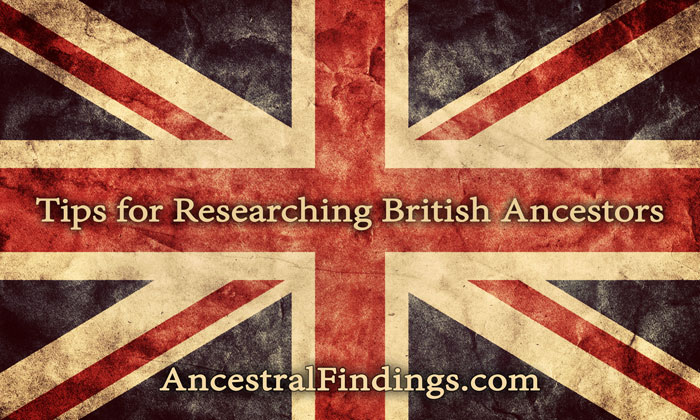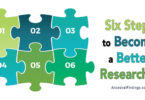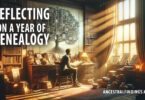What is the Genealogical Proof Standard, and why should you be concerned with it in your research? That's a good question for most beginning genealogists. The Genealogical Proof Standard is the standard of proof set by the Board of Certification for Genealogists that states what type of proof is acceptable to show a relationship beyond a reasonable doubt. Its use is required for articles on genealogy and family history that are published in scholarly and recreational genealogical journals. Most published works of genealogical family history need to use this standard to be taken seriously in the genealogy community, as well.
Even if you don't plan on publishing anything, you should still be using it in your research, and ideally, should use it from the very beginning. Having the Genealogical Proof Standard in your work from the start will save you a lot of time and effort going back over old research and examining what you did before if you ever have a question about whether a previous genealogical conclusion you came to is correct. It is also useful to already have in place if you come across new information that may possibly change the research you've already done on a person or a branch of your family.
What Goes into Research Using the Genealogical Proof Standard?
So, what is involved in using the Genealogical Proof Standard? The Board of Certification for Genealogists® describes it as using all of the following in your research:
- A thorough and reasonably exhaustive search for all relevant information regarding an individual or family
- A comprehensive analysis of all of the available information on an individual or family as to its quality and believability or accuracy as evidence
- A logical and truthful resolution of any conflicting or contradictory evidence discovered
- A complete and accurately phrased citation for each source used in your research, with a footnote attaching each source to its use in your research notes or writings
- A sound, exhaustively researched conclusion regarding your research based on all of the evidence you have discovered and analyzed
If you can do all of these things in your research, and show that you have done them if someone were to ask, you have successfully learned, applied, and used the Genealogical Proof Standard in your genealogy research. Your research is now considered above reproach by the professionals and could be considered for inclusion in a genealogical journal or as genealogical book writing of the highest possible standards.
The Genealogical Proof Standard and Record Reliability
When using the Genealogical Proof Standard, you will want to examine every possible record source regarding your ancestor or family line. Don't leave any stone unturned, and look in every place that might have information on the person or people you're researching. You will also want to be aware of the types of information you're finding, and how reliable they may be. To determine the reliability of the information you discover, you must first know what type of evidence you are examining. The various types of genealogical evidence and their relative reliability include:
Original and Derivative Sources
Original and derivative refer to the provenance of the record you're examining. Original sources are just that… original. They are the first recordings of any type of information. Derivative sources are copies of originals, such as transcriptions, indexes, abstracts, and summaries. Original sources are considered more reliable than derivative sources in the Genealogical Proof Standard because they are not subject to the human error that comes with copying something (unless it is a photocopy of an original record).
Primary and Secondary Sources
These terms refer to the quality of the information you're examining. Primary records are usually considered the most reliable in the Genealogical Proof Standard, because they were created at the time the event they are describing occurred, and were usually made by someone who had first-hand knowledge of the event. Secondary records are those that were created after the event they are describing occurred, and are usually made or generated by someone who was not a witness to the actual event. While secondary sources can be very accurate, they are also more prone to mistakes than primary records, which makes primary records the preferred choice in the Genealogical Proof Standard.
Direct and Indirect Evidence
Evidence is the term used to refer to the level of accuracy you determine a certain record possesses after examining it. Direct evidence directly answers a question, such as when, exactly, someone was born, died, or married. You usually don't need a secondary record to provide further proof or evidence of this fact (though there are exceptions to this rule). Indirect evidence is circumstantial and needs additional record sources to confirm or back up what the record is telling you in order to be sure of its accuracy. You may need one or several pieces of additional information to come to a reasonable conclusion about a record's accuracy if the record is providing you with indirect evidence.
Once you have mastered the Genealogical Proof Standard, you can be reasonably sure your family history is accurate. We all want to do accurate research to leave for future generations. You can avoid leading your descendants on a wild goose chase by applying the Genealogical Proof Standard to all of your family history research, whether you intend to publish it or not. An accurate family history is the primary aim of genealogy, and the Genealogical Proof Standard will give you the best path of creating one.
Genealogy Standards, by Board for Certification of Genealogists
This book tells you everything you need to know to become a certified genealogist.
When to Hire a Professional Genealogist
Have you ever considered hiring a professional genealogist? If you've hit a brick wall in your research, you should consider it. Here's what you need to know.




